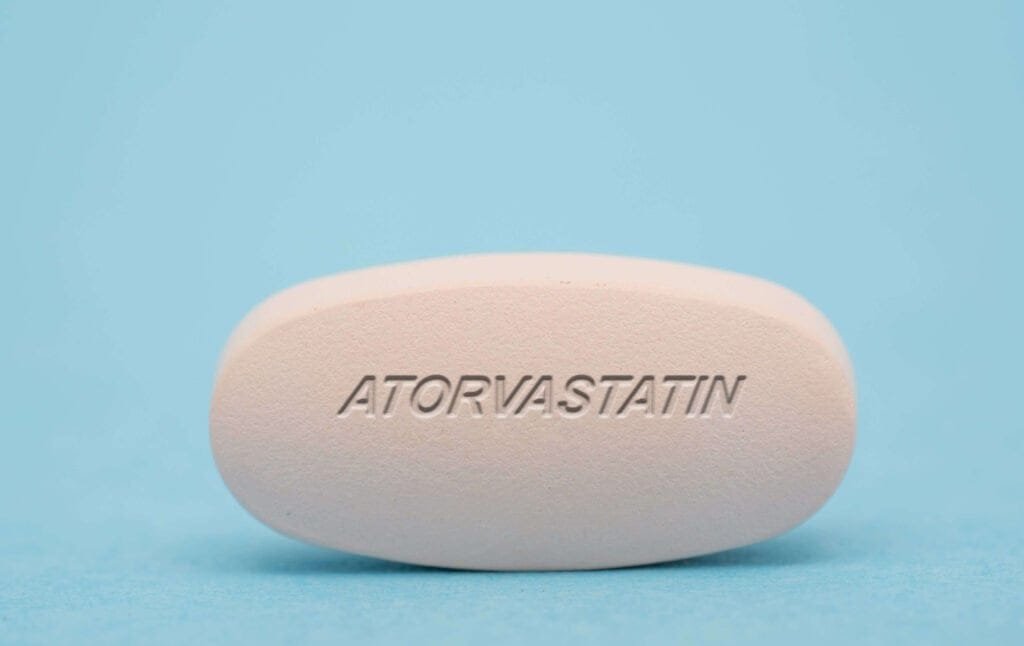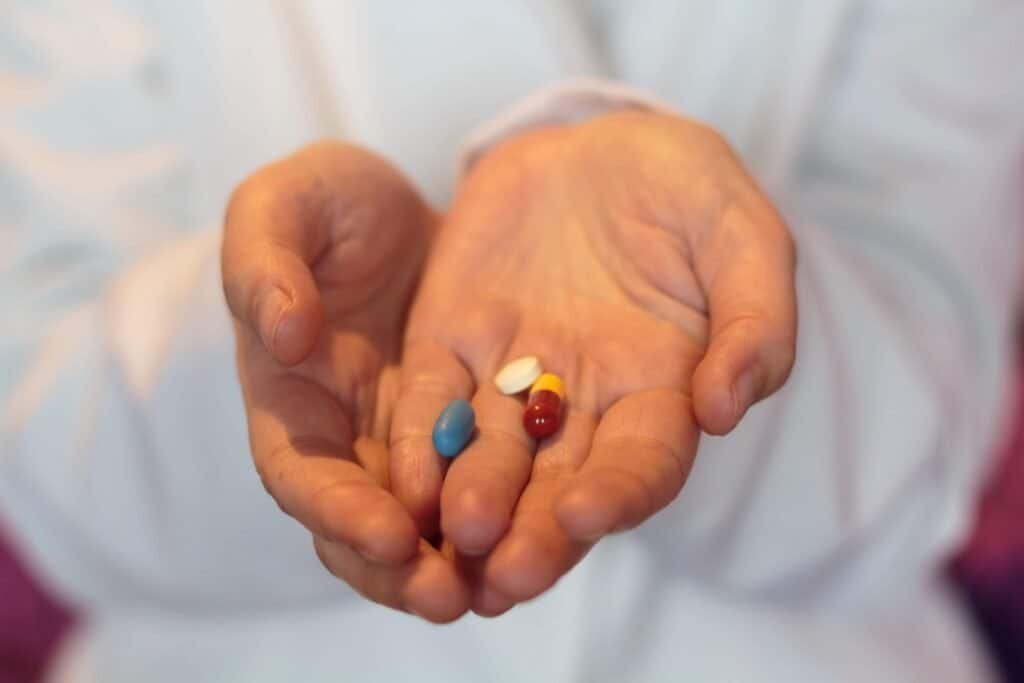
Imagine facing a tough opponent in a fight—one that’s sneaky, hard to spot, and never gives up. That’s what prostate cancer feels like for millions of men around the world. Every year, it takes over 350,000 lives—that’s like losing the entire population of a city. Sure, treatments like surgery, radiation, and chemotherapy can step into the ring, but they often hit hard in ways that linger: think incontinence, exhaustion, or other life-changing side effects. And for too many, those treatments eventually stop working, leaving them wondering what’s next.
Could an existing, commonly used medication already hold the key to better prostate cancer treatment? Welcome to drug repositioning, a clever strategy that’s like finding out your trusty old hammer isn’t just for nails; it can also hold down papers, prop open a door, or even double as a wrench. Suddenly, it’s a whole new tool. That’s the magic of taking drugs we already know and giving them a fresh purpose in the fight against prostate cancer.
What Is Drug Repositioning?
Drug repositioning—or repurposing, if you prefer—is like discovering a hidden talent in an old friend. It’s when a drug made for one thing (say, tackling diabetes or chasing off infections) turns out to be a champ at something else—like battling cancer. The best part? These drugs have already been through the safety gauntlet, so they can skip years of testing and get to patients faster. For prostate cancer, a stubborn foe that’s tough to beat in its later stages, this strategy represents a major shift, offering a glimmer of hope when it’s needed most.
Why Prostate Cancer Needs Innovation

Prostate cancer is a cancer that moves unseen. It can grow quietly for years without waving a red flag, which means it’s often caught late, after it’s already spread and gotten trickier to tackle. The treatments we’ve got? They’re like swinging a sledgehammer at a walnut—effective sometimes, but they can smash up healthy stuff too. Side effects like losing bladder control or feeling wiped out all the time can turn daily life upside down. And here’s the kicker: for some guys, the cancer figures out how to dodge those treatments, leaving them with nowhere to turn.
That’s where repurposed drugs swoop in. Scientists are rummaging through the medicine cabinet, pulling out drugs originally meant for things like arthritis or fungal infections, and finding they might just have the smarts to take on prostate cancer in a gentler, cleverer way.
The Three Paths to Discovery: How Repurposed Drugs Are Found
Finding these secret superheroes isn’t random luck—it’s science at work. Here’s how researchers are tracking them down:
- The “Aha!” Moment (Knowledge-Based): Sometimes, it’s a happy accident. A doctor notices something odd—a patient on a drug for one thing starts doing better with something else. Take ormeloxifene, a birth control drug. Researchers spotted it might stop prostate cancer cells from spreading by messing with key proteins. It’s like finding a hidden room in a house you’ve lived in forever.
- The Systematic Search (Activity-Based): This one’s more hands-on. Picture a high-tech lab where robots test thousands of drugs, like speed-dating for meds, to see which ones have a knack for fighting cancer. Atorvastatin, a cholesterol-lowering drug, came up a winner here—it shrank prostate tumors in tests and is now being tried out on real patients.
- The High-Tech Hunt (In Silico): Now we’re talking sci-fi vibes. Supercomputers crunch massive piles of data, predicting which drugs might work for new problems without ever touching a lab bench. Zenarestat, once aimed at diabetes complications, got flagged this way and is now being tested to see if it can halt cancer cells in their tracks.
Repurposed Drugs Making Waves in Prostate Cancer Treatment

Some familiar names are stepping up to the plate, showing they’ve got more to offer:
- Metformin: Known for taming diabetes, this drug’s also a rising star against cancer. It starves prostate cancer cells by cutting off their energy supply. Bonus: it’s been around forever, so we know it’s safe for most patients.
- Aspirin: That little pill you pop for a headache? It might also lower your odds of dying from prostate cancer by calming inflammation and blocking the paths cancer uses to roam.
- Niclosamide: Originally a parasite fighter, this one’s like a ninja, slipping into cancer cells and hitting their weak spots—especially in tough cases where other treatments have tapped out.
There’s more in the works too—drugs like itraconazole (for fungal infections) and atorvastatin (for cholesterol management) are being tested to see if they can join the cancer-fighting crew.
The Science Behind the Success: How These Drugs Work
These drugs aren’t just lucky—they’re clever. They hit cancer where it hurts, in ways traditional treatments often miss:
- Starving the Enemy: Metformin messes with cancer cells’ metabolism, like unplugging their fridge.
- Jamming the Signals: Niclosamide blocks the chatter that tells cancer cells to grow and spread, like cutting their phone lines.
- Triggering Self-Destruct: Aspirin can nudge cancer cells into “apoptosis”—fancy word for making them self-destruct, like convincing them the game’s over.
Unlike chemo, which can feel like dropping a bomb on everything, these drugs are more like sharpshooters, aiming to spare the good guys and keep side effects in check.
Real Results: What the Studies Say

This isn’t just wishful thinking—there’s solid proof piling up:
- A study in The Lancet Oncology found men with advanced prostate cancer who took aspirin were 30% less likely to die from it.
- Metformin’s been shown to drop PSA levels—a key cancer marker—in some patients.
- In animal tests, niclosamide shrank tumors and stopped them from spreading.
These wins aren’t just stats; they’re real hope. That said, we’ve still got homework to do to nail down how best to use these drugs.
The Challenges and the Road Ahead
It’s not all smooth sailing. There are a few hurdles to jump:
- Dosage Dilemmas: A drug perfect for one thing might need tweaking for cancer, and finding the sweet spot takes time.
- Personalized Puzzles: Not every drug fits every guy, so we’re pushing toward custom-fit treatments based on your unique makeup.
- Funding Fights: Many of these drugs are old news to big pharma, so they’re not rushing to fund pricey trials. Luckily, universities and nonprofits are picking up the slack.
But the future’s looking up. With AI and big data, we’re spotting new possibilities faster than ever. Picture this: one day, your doctor might whip up a personalized mix of repurposed drugs just for you, based on your DNA. It’s not sci-fi—it’s getting closer every day.
Things Are Looking Up
Prostate cancer’s a tough nut to crack, but we’re tougher. Every repurposed drug we uncover isn’t just a treatment—it’s a spark of hope. We’re heading toward a time when this disease isn’t a life-ender but something you can manage and live with.
If you or someone you love is in this fight, don’t give up. Chat with your doctor about what’s out there—maybe even clinical trials for these repurposed champs. The next big win could be sitting in a medicine bottle near you, waiting to be unleashed.
If you enjoyed learning about repurposed drugs fighting cancer, check out our post on how anti-parasitic drugs are emerging as a promising weapon against this disease.
Love what you’re reading? Don’t miss out on the latest insights, tips, and inspiration! Subscribe to our blog and get fresh content delivered straight to your inbox.
📬 Be the first to know.
💡 Gain valuable ideas.
🎉 Join a growing community of informed minds.
Click Subscribe and let’s keep the conversation going.🌟
Sources:
Bray, G. A., & Ryan, D. H. (2018). Evidence-based weight loss interventions: Individualized treatment options to maximize patient outcomes. Journal of the
American Medical Association, 319(3), 316-317. https://pmc.ncbi.nlm.nih.gov/articles/PMC5962745/
Statin Use and Risk of Prostate Cancer Recurrence in Men Treated With Radiation Therapy: https://ascopubs.org/doi/10.1200/JCO.2009.27.3003 – This article, published in the Journal of Clinical Oncology, discusses the association between statin use and improved outcomes in prostate cancer patients treated with radiation therapy.
Statin use and prostate cancer risk | Journal of Clinical Oncology – ASCO Publications: https://ascopubs.org/doi/10.1200/jco.2004.22.90140.4596 – This article from the Journal of Clinical Oncology explores the link between statin use and a lower risk of prostate cancer.
